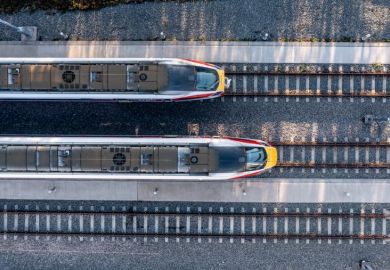In a speech today to launch the consultation, Chancellor George Osborne is due to stress that science, research and innovation remain central to the government’s long-term economic plan.
But he is also expected to say that the UK needs to do more to create commercial successes from scientific discoveries.
In last year’s Spending Round, Mr Osborne announced that the capital budget for science would be increased to £1.1 billion in 2015-16 and maintained in real terms until the end of the decade.
The Treasury wants the consultation to ensure the money “is targeted at the areas of research that scientists believe have the highest potential and greatest opportunity for commercial application”.
In his speech he will also announce that the government will fund a new £200 million polar research ship for climate and ocean research in both Antarctica and the Arctic.
Speaking ahead of his speech, Mr Osborne said: “While as a country we have a proud record in scientific ingenuity, too often it has been other countries that have enjoyed the economic opportunity from it.
“Our long-term economic plan is about ensuring Britain benefits from its scientific excellence.”
He said the consultation would involve the “scientific community – both researchers and businesses” to determine how the capital money should be spent.
“Backing British science, supporting businesses seeking to grow off the back of it and protecting investment in it is a central part of our long-term economic plan.”
David Willetts, the universities and science minister, said: “Today’s launch of our consultation on future capital investment is a historic opportunity for British science.
“Our scientists can identify the next Crick Institute or the next equivalent of the Laboratory of Molecular Biology for us to invest in.”
Of the polar research ship, the design of which was proposed by the Natural Environment Research Council, Mr Osborne said that the polar oceans are one of the “final frontiers” in the world where there are still many discoveries to be made.
“Britain must continue to have a presence in these parts of the world. But our two current polar exploration ships are nearing the end of their life and need replacing,” he added.
The ship – which will include robotic vehicles and sophisticated underwater environmental monitoring systems – will be operated by the British Antarctic Survey and available to the whole UK research base including for postgraduate training.
Register to continue
Why register?
- Registration is free and only takes a moment
- Once registered, you can read 3 articles a month
- Sign up for our newsletter
Subscribe
Or subscribe for unlimited access to:
- Unlimited access to news, views, insights & reviews
- Digital editions
- Digital access to THE’s university and college rankings analysis
Already registered or a current subscriber?




